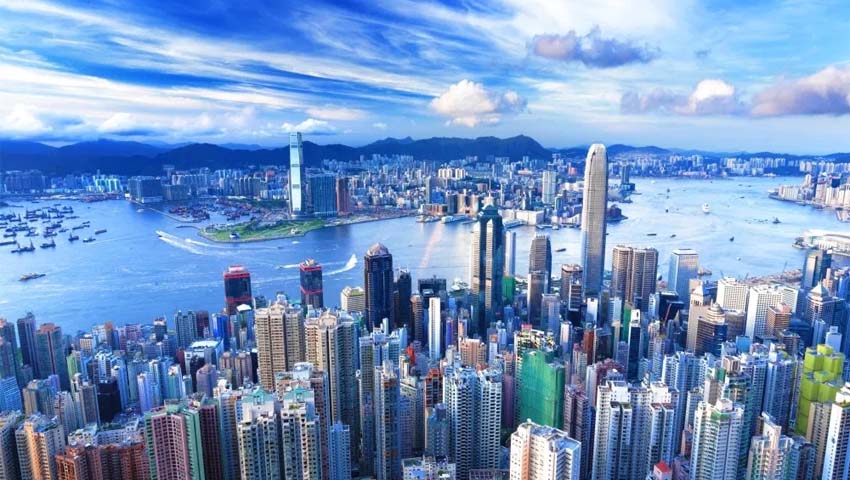With the People’s Liberation Army massing on the border of Hong Kong and a series of renewed pro-democracy riots, the message to the Indo-Pacific is becoming clearer by the day: China will stop at nothing to enhance its hold on locations, peoples and resources the nation deems are in its “national interest”.
To continue reading the rest of this article, please log in.
Create free account to get unlimited news articles and more!
Like every ascendent economic, political and strategic power, China has used its period of rapid industrialisation and economic expansion to begin establishing its position within the broader global context – fuelled by a long memory of a “century of humiliation” at the hands of Western imperialism, finally ending with the successful Communist Revolution in 1949, China and its political leaders have dedicated the nation to establishing a new era of Chinese global primacy.
As China’s position within the global order has evolved and its ambitions towards the Indo-Pacific, in particular, have become increasingly apparent, the Chinese government, driven by an extremely ambitious leader, President Xi Jinping, has identified a number of factors of both “internal” and “external” concern for the rising superpower’s status.
These “concerns” extend to traditional areas of Chinese focus, namely, central Asia, Tibet and the Taiwan situation, and have now seemingly spread to Hong Kong as dissent continues to grow and nearly 200,0000 military police have been deployed to the border. This commitment to resolve “internal” matters through either the threat of or the use of force, combined with China’s insistence on unilaterally defined “national interests” being internal matters, casts an ever-growing shadow of concern for many nations throughout the Indo-Pacific.
Sensitive souls
Concerningly, China’s continued recalcitrance towards foreign concerns about the use of force and the threat of force, combined with the seemingly sensitive nature of the Chinese Communist Party to external criticism, either from corporate entities, like luxury goods companies Swarovski and Coach, serves as a unique conundrum for the rising superpower while raising some troubling questions for nations throughout the region.
This confluence of issues was further exacerbated following a statement released by the Chinese state-owned Global Times, which stated: “If Hong Kong rioters cannot read the signal of having armed police gathering in Shenzhen, then they are asking for self-destruction.”
Thrashing against this seeming sensitive nature, China has been quick to highlight its focus on a number of “internal” security challenges that directly impact the rising superpower’s sovereignty, security and therefore directly impact the continuing economic development of the nation – despite the “domestic” nature of these national security issues, they have nevertheless drawn international condemnation.
This reinvigorated, seemingly aggressive posture was identified in the Chinese government’s new Defence White Paper, “China’s National Defense in the New Era”, which focuses on securing China’s growing designs and ambitions for the Indo-Pacific, with a focus on securing China’s sovereignty, economic and territorial ambitions in the region – posing important questions for Australia to consider moving forward.
Questions for Australia
China’s insistence on maintaining its “peaceful rise” is seemingly contradicted by its willingness to declare any area of economic, political or strategic interest a part of China, and nowhere is this more evident than in the South China Sea – placing the rising superpower’s ambitions in direct conflict with the post-Second World War economic, political and strategic order established by the US and supported by a number of established regional powers, including Japan, Australia and South Korea.
Despite Australia’s enduring commitment to the Australia-US alliance, serious questions remain for Australia in the new world order of President Donald Trump’s America, as a number of allies have been targeted by the maverick President for relying on the US for their security against larger state-based actors, which has seen the President actively pressuring key allies, particularly NATO allies, to renegotiate the deals.
Enhancing Australia’s capacity to act as an independent power, incorporating great power-style strategic economic, diplomatic and military capability serves, as a powerful symbol of Australia’s sovereignty and evolving responsibilities in supporting and enhancing the security and prosperity of Indo-Pacific Asia.
Shifting the public discussion away from the default Australian position of “it is all a little too difficult, so let’s not bother” will provide unprecedented economic, diplomatic, political and strategic opportunities for the nation. However, as events continue to unfold throughout the region and China continues to throw its economic, political and strategic weight around, can Australia afford to remain a secondary power or does it need to embrace a larger, more independent role in an era of increasing great power competition?
Get involved with the discussion and let us know your thoughts on Australia's future role and position in the US alliance structure and the Indo-Pacific more broadly in the comments section below, or get in touch with
Stephen Kuper
Steve has an extensive career across government, defence industry and advocacy, having previously worked for cabinet ministers at both Federal and State levels.

 Login
Login








